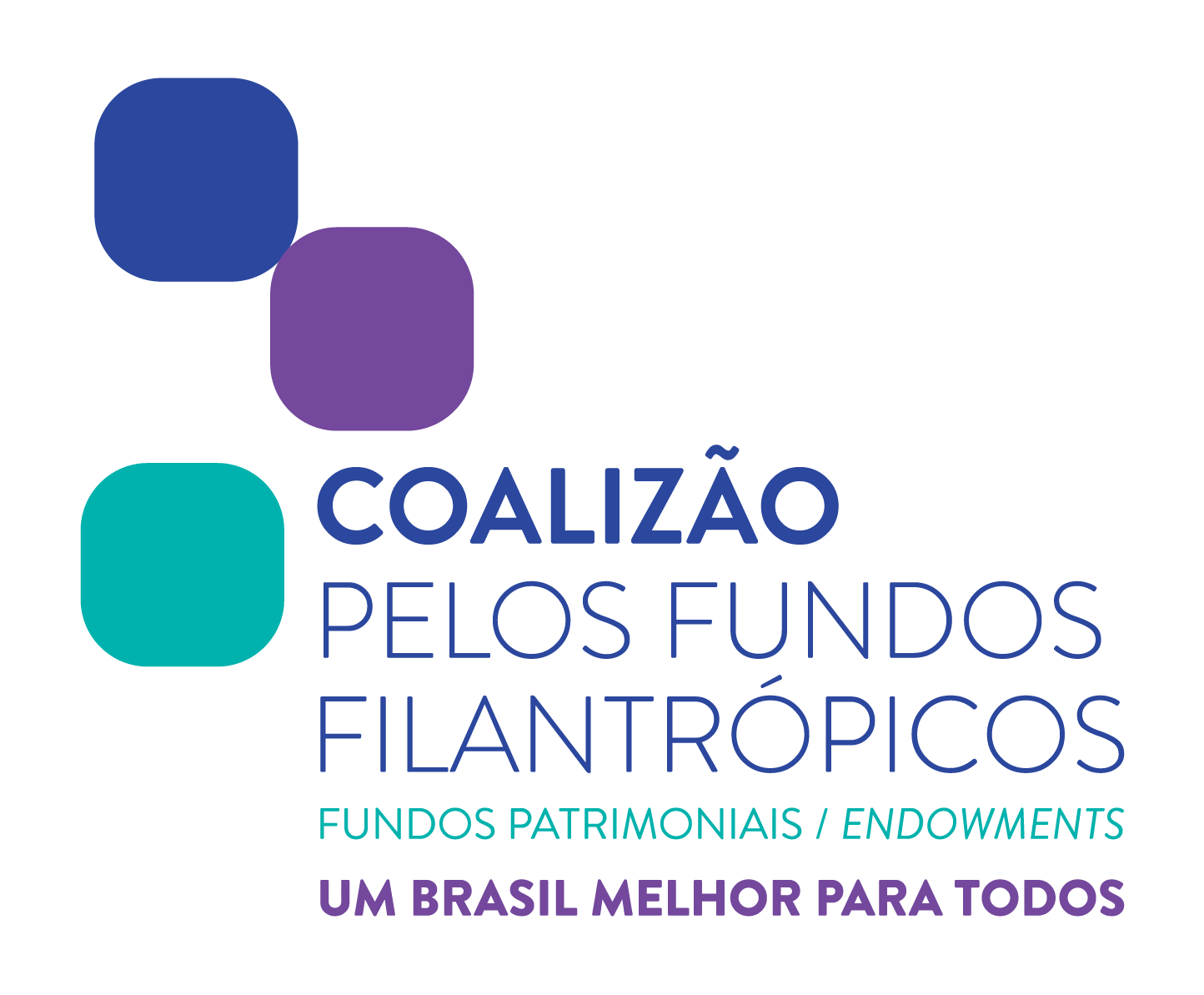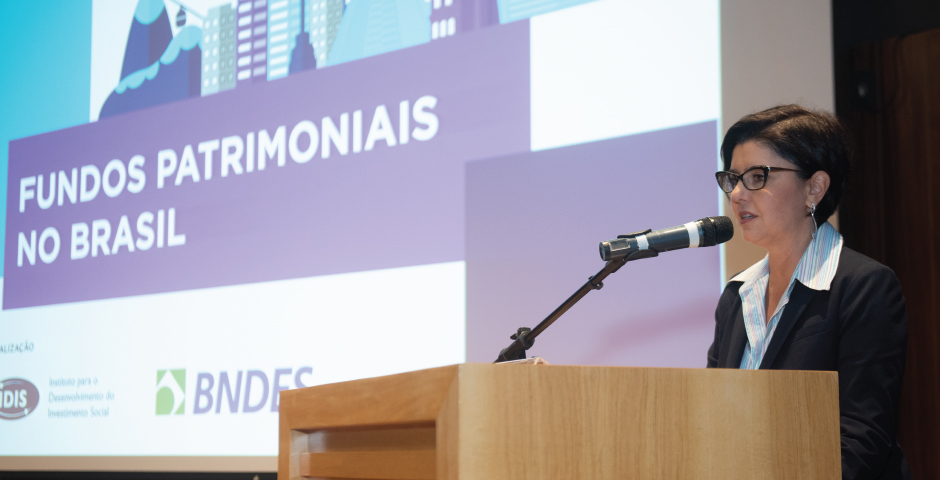IDIS led an education and advocacy strategy to build support for an Endowment Law that was approved in January 2019.
Overview
Until recently, there was no supporting legislation for endowments in Brazil. As a consequence, few incentives existed and there were only a limited number of endowments to support CSOs in Brazil.
IDIS worked with others to build support for an Endowment Law over an eight-year period, including a strong education element about why it was needed, alongside an advocacy strategy to see a law ultimately enacted. Given the importance of endowed giving in the growth of philanthropy in many countries, bolstering it should provide a major boost to Brazil’s culture of giving.
Context
In spite of the fact that endowment funds are a well-known and commonly used mechanism in the developed world, they are only just beginning to be used elsewhere.
Some of the largest endowments in the world can be found in the United States of America and the United Kingdom. Some examples of the largest and most relevant endowments are the Bill & Melinda Gates Foundation, with an endowment valued at over $50 billion USD, Harvard University’s endowment, valued at over $37 billion USD, and the Wellcome Trust endowment, valued at over $30 billion USD. In emerging economies, this is also a trend with such examples as the Mohammed Bin Rashid Al Maktoum Foundation in the United Arab Emirates and its $10 billion endowment, and in India, with the Azim Premji Foundation and its $21 billion endowment.
However, in Brazil there was no legislation regulating endowments, meaning while there were a few endowments, such as the Bradesco Foundation and Maria Cecilia Souto Vidigal Foundation, both linked to a financial institution when founded, they were rare. Until now there has been no legal environment to support endowments, creating a level of uncertainty for endowment donors.
accomplishments
IDIS, the Brazilian partner of the Charities Aid Foundation (CAF Global Alliance), sought to generate support for an enabling endowment law in Brazil effectively from scratch.
The pillars of innovation included a dual strategy of education and advocacy. IDIS took key actions including:
1. Launched a book
in 2012, entitled “Endowment Funds, Creation and Management in Brazil” with support from Vale Foundation and Ford Foundation. It was the first book to address this topic in Brazil and continues to be a reference for organisations, philanthropists, academia, fund managers and regulators.
2. Led several meetings resulting in the drafting of a bill proposal for endowments, based on international best practice
In 2012 and 2013, IDIS convened the Endowment Study Group with GIFE and JP Morgan. The group had 90 members, including lawyers, executives of the non-profit sector, public prosecutors, academics and others
3. Developed 3 guidance documents and other useful materials on
Endowment Funds
In 2016, IDIS developed guidance in partnership with Levisky Negócios & Cultura, PLKC Advogados, with sponsorship by the Brazilian National Development Bank (BNDES), Petrobras and Caixa Econômica Federal. They also translated an important book on philanthropy and endowments, ‘Philanthropication through Privatization’ (PtP) by Professor Lester M. Salamon from John Hopkins University
4. Created an advocacy strategy with several partners from civil society philanthropy and the private sector.
IDIS and others agreed fundamental principles for good legislation that would benefit CSOs, philanthropy and social investors. These included:
• Breadth of the social causes and non-profit organizations that may constitute endowment funds
• Existence of fiscal incentives
• Governance and transparency rules based on international best practices
5. Met with congressional representatives and government officials across multiple departments
Over a 6 year period, including the General Secretary of the Presidency, representatives of the Chamber of Deputies, Federal Senate, IDB and the Ministry of Education, Culture and Economy. IDIS hosted events and discussions that led to 11 Bills in the National Congress that sought to regulate endowments in Brazil.
6. Brought together the Coalition for Endowments
(“Coalizão pelos Fundos Filantrópicos” ) in the final stages to strengthen the movement for the regulation of endowments. Led by IDIS and with legal advice from PLKC Advogados, relevant organizations supported the creation of the movement: Gife, APF, Cebraf, Humanitas 360 and Levisky. With over 60 organizations, the Coalition was launched in the National Congress in 2018.
Challenges
The path that has led to the approval of the legislation was long and unpredictable and IDIS needed to be prepared and flexible. For example, in 2018, due to an unfortunate catastrophe, a fire that destroyed over 90% of the Brazilian National Museum’s archives ended up being a catalyst for government action. Michel Temer, the President at that time, signed a Provisional Measure to ensure that museums, universities, other public institutions and nonprofits benefit from the endowment mechanism, improving their long-term sustainability. IDIS, in the name of the Coalition, released a Public Notice declaring support to the measure and highlighting the importance that it includes all social causes and organizations.
Advocacy depends on organizational agility. Identifying key government representatives that could push forward the initiative is very important, but more so is the ability to respond rapidly to all opportunities that emerge in the process, with concrete alternatives. The IDIS president was directly involved and there were dedicated funds provided in the final stages to help achieve success.
What was achieved?
In early 2019, after eight years of work by IDIS, Brazil’s government approved the Provisional Measure, transforming it into the 13.800 Law, the “Endowments Law”.
• The law will provide better incentives for creating endowments, expected to benefit cultural CSOs, such as museums and orchestras in particular.
• IDIS also built a stronger network of civil society supporters. Over the long period of advocating for endowment regulation in Brazil, IDIS was able to attract multiple partners and supporters to the cause (over 60 organizations from all sectors). It became a core pledge across civil society that united different actors. • Laying the groundwork for longerterm impact. If Brazil’s largest fortunes donate 1% of their assets to endowments, at least US$ 1.2 billion for philanthropy would be realized.
KEY LESSONS
> Organisations should be responsive to external events which can help to galvanise political support – in this case a tragedy of a museum fire
>Getting a new law passed takes time. Successful advocacy depends on agility and perseverance, as well as availability throughout the process to respond to events and opportunities as they arise
> Building a strong knowledge base on the aims, with international benchmarks, is important
> Creating a broad coalition was the critical innovative aspect that led to success





